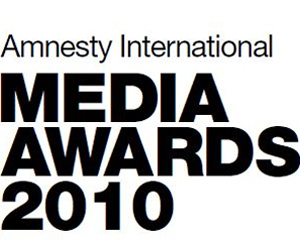Jon Snow has presented Channel 4 News for 21 years.He has worked in television news for more than three decades, always at ITN, but he is also the Visiting Professor of Broadcast Journalism at Coventry University.
What he does not know about making TV news and Current Affairs probably is not worth knowing and late last week, Snow passed on the wisdom of his years to young wannabe hacks at Coventry University.
Five golden pieces of advice from the master:
1. Stay sober: a lesson he learned in his early days at ITN then awash, in his view, with alcohol.
The truth is you had to be pissed to get on in television. People drank vast quantities whilst they were working. We had a bar inside the studios and people would put out the lunchtime news and go and have a few pints and then go back to work completely squiffy.
His road to Damascus came one day when after the early evening news, the editor at the time and next most senior person invited him for a drink:
I went across the road to the wine bar, sat down with them and after about an hour, realising I still had to do a piece for News at 10, there were six empty wine bottles on the table and only three of us, so I realised I must have drunk at least one-and-a-half of them. I was now squiffy in any case. After a time I wanted to go to loo, so I went downstairs to the gents and I was unsteady on my feet and lurched into the cistern. It detached itself from the wall and crashed into the throne and then exploded in an eruption of water cascading everywhere. I made a very fast retreat, shut the door, saw the water pouring out underneath. I saw these two guys sitting there and thought ‘they’re going to drown’ and I said ‘chaps, got to get back and get my piece on for news at 10’. I sat there watching out of the window thinking this was the end of my career.
It wasn’t. Snow has not really drunk on the job since.
2. Keep it simple: Jon explained how he had appreciated reporting from Haiti after the earthquake had struck in January, because it went back to his roots – finding stories and telling them, simply, to viewers using all original footage and through this simplicity touching the hearts of millions. He pointed to the fact that £100 million was given by the British public to Haiti Relief partly as a result of the messages from broadcasters. Snow is planning to return soon to Haiti to follow up on the stories.
3. Expect the unexpected: Tuesday 11 May was a moment of “complete magic” for Snow, as Channel 4 News went live outside Downing Street to broadcast the resignation of Gordon Brown.
At 18 minutes past seven the car comes out and we have no idea where things are going. Normally the great thing about anchoring any programme is that you’ve got this thing [an earpiece], the lifeline, the umbilical chord to the producer, and they’re saying, ‘Jon he’s going to the Palace’. But they didn’t – I was hearing nothing but silence. I suddenly realised I was on a one-to-one adventure with the viewer. The viewer and I were equally ignorant about what was going to go on; it was a sublime moment of total equality when we were both peering at this helicopter image and the car was turning right and turning left.
4. Have a point, but keep away from pressure: Snow said that TV had made the 2010 election with the Prime Ministerial debates dominating the agenda and the tabloid press having to follow that. The Murdoch-owned press fared especially badly, he said: “The tabloid press had a terrible, terrible election. They got it seriously wrong. Murdoch was beaten, in a fantastic moment in history Murdoch, decided to try and elect David Cameron and the Sun went out to bat for him. We now have the first government for a long time not elected with Rupert Murdoch’s support.”
Then when questioned about the success of Channel 4’s comedy election night coverage and what that says about the British public, Snow said: “It tells you that people are real who necessarily wants to watch drab results with people as old as the ark coming out and saying ‘bark, bark’.”
5. Keep your cool, but lose it if you must: Snow was very sympathetic to Sky News Political editor Adam Boulton about his outburst on air to Alastair Campbell on 10 May.
It’s no good asking, ‘should anybody have lost anything?’ He lost it, so what? Good God, the world would be duller place if people didn’t lose it (…) what’s misconduct? If he’s guilty of it I’ll have to go to the hang man’s noose.
Snow said he saw Boulton’s outburst as a possible result of pressures building up on Boulton and Sky News to move along the road to a more Fox News’ style approach.
Simple, to the point, straightforward – but that’s Jon Snow for you.
